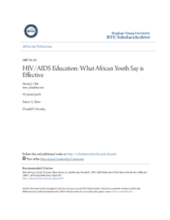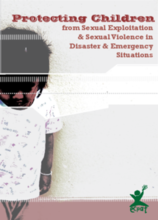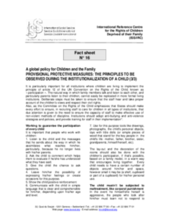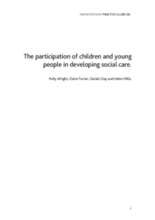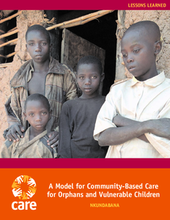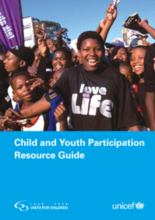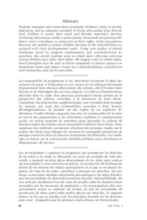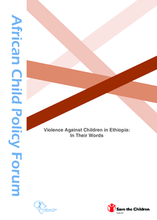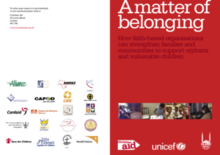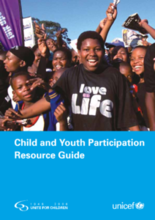Displaying 311 - 320 of 377
A study of HIV/AIDS education programs and direction for creating curricula in African schools.
A practical guide for local and communtiy based organizations about how to protect children from sexual abuse and exploitation in disaster and emergency situations.
A brief 2-page document that highlights the importance of child participation, post care planning, guarding against abuse, and connecting residential institutions with the surrounding community.
A guide on the changes needed to the culture, structure, and practice of organizations in order to include children’s participation in developing social care
A lessons learned document reviewing impacts of a community-based care and mentoring program for child-headed households in Rwanda.
An extensive annotated bibliography of resources on child participation.
Explores the ways in which data collection activities affect children’s rights and suggests methods by which rights-based principles may be used to derive appropriate safeguards to prevent unintentional harm and abuse.
Analysis of child perceptions and testimonials that comprises the third and final set of results from a major study of violence against children in Ethiopia. Emphasizes child participation for implementation of effective policy.
A guide for faith-based organizations working in developing countries on issues related to orphans and vulnerable children. Contains examples of successful community-based and family support care programs throughout the world that are run by faith-based groups. Discourages the use of institutional care and orphanages.
A directory of resources on child and youth participation. It provides a listing of publications, organizations and web resources from practitioners worldwide on a broad range of child participation issues and projects.

